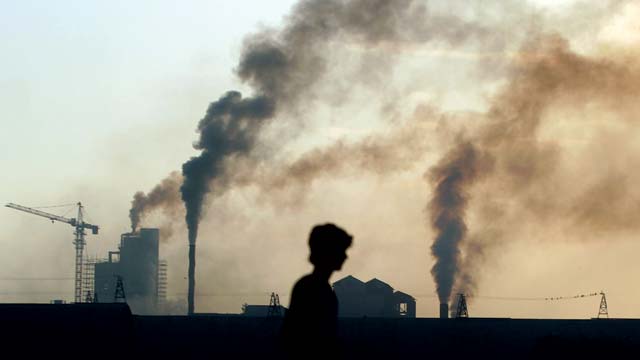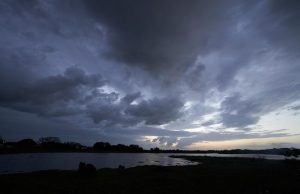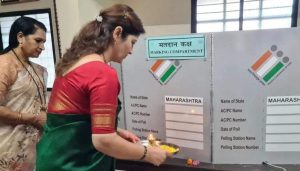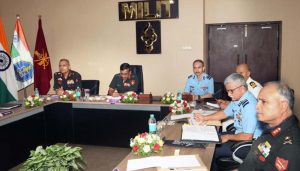Pune Joins Citizen Campaign To Demand Health Warnings On ‘Bad Air’ Days

Pune, 7th September 2021: In a first of its kind campaign, concerned citizens, civil society organisations across Maharashtra have demanded that Urban Local Bodies (ULB) mandatorily issue timely health advisories publicly, to alert citizens on ‘bad air’ days, which will help save vulnerable groups from severe health impacts of air pollution.
With Pune taking a lead, the joint call to action comes from non-attainment cities like Mumba, Nagpur, Chandrapur and others reeling under poor air quality, and not just during winters.
Bad air days are when the air quality index (AQI) – pollutant measuring indicator – rises beyond the safe limit for any location falling either under the poor, very poor or hazardous AQI levels.
The online campaign (https://blueskies.jhatkaa.
Maharashtra has a total of 19 non-attainment/ million-plus cities under the National Clean Air Action Plan (NCAP), highest for any state in the country. A non-attainment city is one that does not meet the prescribed air quality standards set by the Union environment ministry.
Bhagwan Kesbhat, Founder of Mumbai based Waatavaran Foundation and member of Maharashtra Clean Air Collective- a collaborative network of citizens organizations, institutions working towards the common objective of clean air said that this is a pan India citizen-led online campaign. “Using this online petition, citizens will be demanding timely public health advisories be issued widely in the mainstream public domain so that we all can not only protect ourselves but also our loved ones when the air quality in the city deteriorates. The campaign also demands proper implementation of the Clean Air Action Plan across all 18 non-attainment cities,” stated Kesbhat.
He added as part of this campaign, citizen groups across all non-attainment cities in Maharashtra will also plan and meet their respective Municipal Commissioners and submit a letter stating the demand of health advisory when air quality deteriorates,” said Keshbhat.
The online petition is also being shared widely on social media and WhatsApp groups and already over 15 organisations across Maharashtra have actively supported this campaign.
Pune based Ronak Sutaria who is the founder of Respirer Living Sciences, which focuses on real-time data monitoring shared that the health advisories will prove to be a very effective tool for everyone, especially those who suffer from respiratory issues, senior citizens and pregnant women.
“However it’s important that the health advisory should be hyperlocal in nature as it will help users know about days and time when they should avoid outdoor activities like walking, cycling or other exercises as well as avoid having people vulnerable to breathing difficulties and small children for playing outdoors in their specific locality,” he said adding that globally this is already being done and there are simple and effective templates available that our ULB’s can use to send these neighbourhood-level advisories in a manner that people will understand.
The recent Air Quality Life Index (AQLI) released by the Energy Policy Institute at the University of Chicago (EPIC) for 2019 revealed that the national average reduction in lifespan due to PM 2.5 was four years in Maharashtra. City wise PM2.5 exposure was reducing life expectancy by 4.2 years in Pune, 3.7 years in Mumbai respectively while for several polluted districts in Vidarbha it was found to be five years.
Speaking about how prolonged exposure to bad air quality can lead to severe health complications including heart ailments as well as Chronic Obstructive Pulmonary Disease (COPD) Dr. Sundeep Salvi, Director, Pulmocare Research and Education, Pune informed that those suffering from COPD are also more vulnerable to Covid-19. “At present, a huge population doesn’t even understand the health impacts of air pollution hence timely alerts about bad air made publicly by the municipal corporations will not only help build awareness but at the same time provide people with information about outdoor air,” he said adding that these alerts would be extremely helpful during winters when COPD gets worse due to cold dry air and also there is a rapid deterioration in air quality.
Ranjit Gadgil, Program Director, Parisar said that groups such as waste pickers, autorickshaw drivers, traffic police street vendors and so many others who are out on the streets for long hours are at higher risk due to pollution.
“Getting health advisories about “bad air” days is critical – but ultimately the city will have to clean up the air by reducing vehicular emissions, by aggressively improving public transport and implementing measures such as the parking policy to reduce vehicles on the roads,” he said adding that Parisar, along with other local CSOs, has been engaging with the Pune Corporation to ensure proper utilisation of funds to reduces air pollution.
Divya Narayanan, Campaigns Director for Jhatkaa.org, which has created the portal for the citizen’s campaign said that the pandemic had forced us all to seek out as much information as possible to safeguard our health and of our loved ones against the virus. “In the same manner, we must realise that we need to demand more information to be made widely available about the air we breathe, and its effects on our health. It’s all the more important now in light of Covid-19, that we have information widely made available to us so we can make learned choices for our health on bad air days,” she said.
Prof. SN Tripathi from the Civil engineering department, IIT Kanpur who is the steering committee member of National Clean Air Program (NCAP), said, “The role of urban local bodies is extremely important across all non-attainment cities as it gives them the impetus to enhance and expand monitoring networks, create a data and dissemination mechanism (website, local media and radio), and thirdly manage the city properly (better traffic and waste management). ULBs also have to allocate monetary resources in line with these frameworks that have been provided under the 15th Finance Commission and NCAP budgets and thus they need to focus on issuing health warnings associated with different air quality labels and communicating them to citizens on a daily basis for better awareness.”
Dipankar Saha, Former Additional Director, Central Pollution Control Board (CPCB), added, “Urban local bodies must issue health warnings when the AQI for a certain region crosses the safe limit to ensure the public can take appropriate decisions to protect themselves. It has to be a mandatory requirement for all. Thus the National Clean Air Program (NCAP) has its focus right at the ULB level.”
International Day of Clean Air for Blue Skies was declared by the United Nations General Assembly on September 7 in recognition of the growing interest in clean air among the international community, and the need to continue improving air quality to safeguard human health.
“Clean Air for All” was the subject for the first-ever International Day of Clean Air for Blue Skies, which was introduced last year. “Healthy Air, Healthy Planet” is this year’s topic for International Day of Clean Air, which highlights the health implications of air pollution, particularly during COVID-19’s pandemic.





